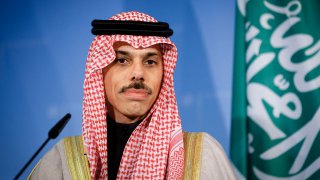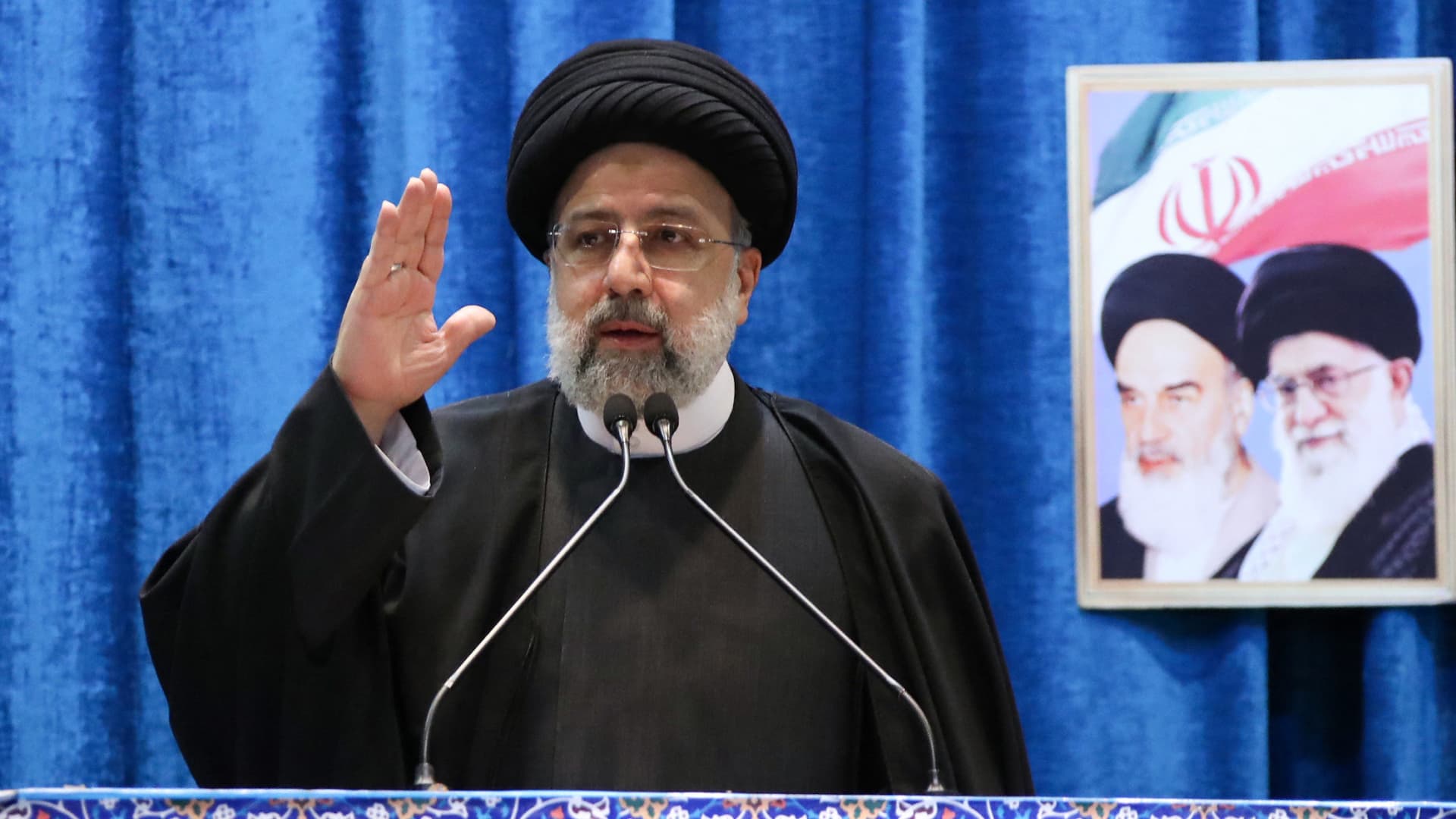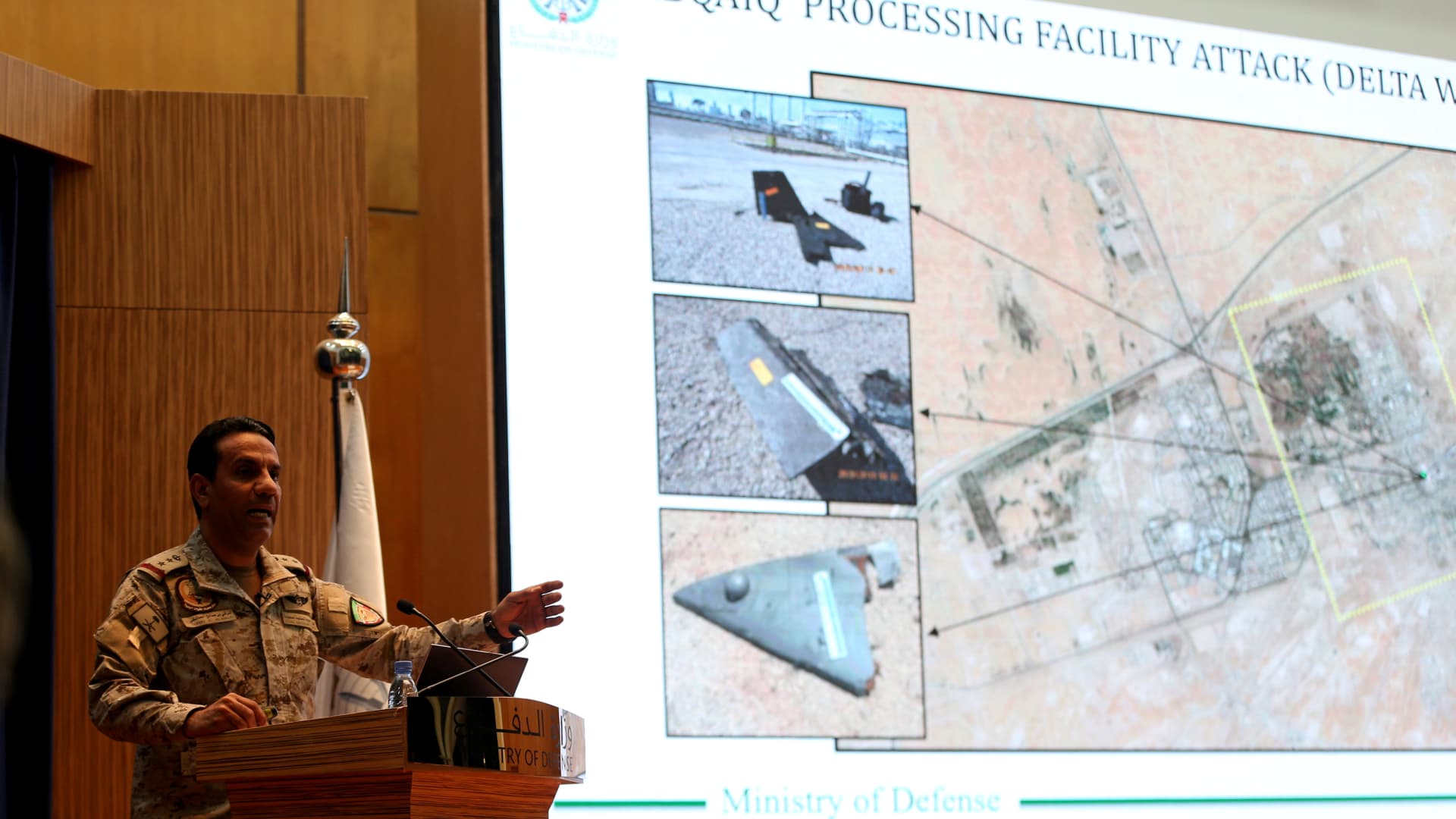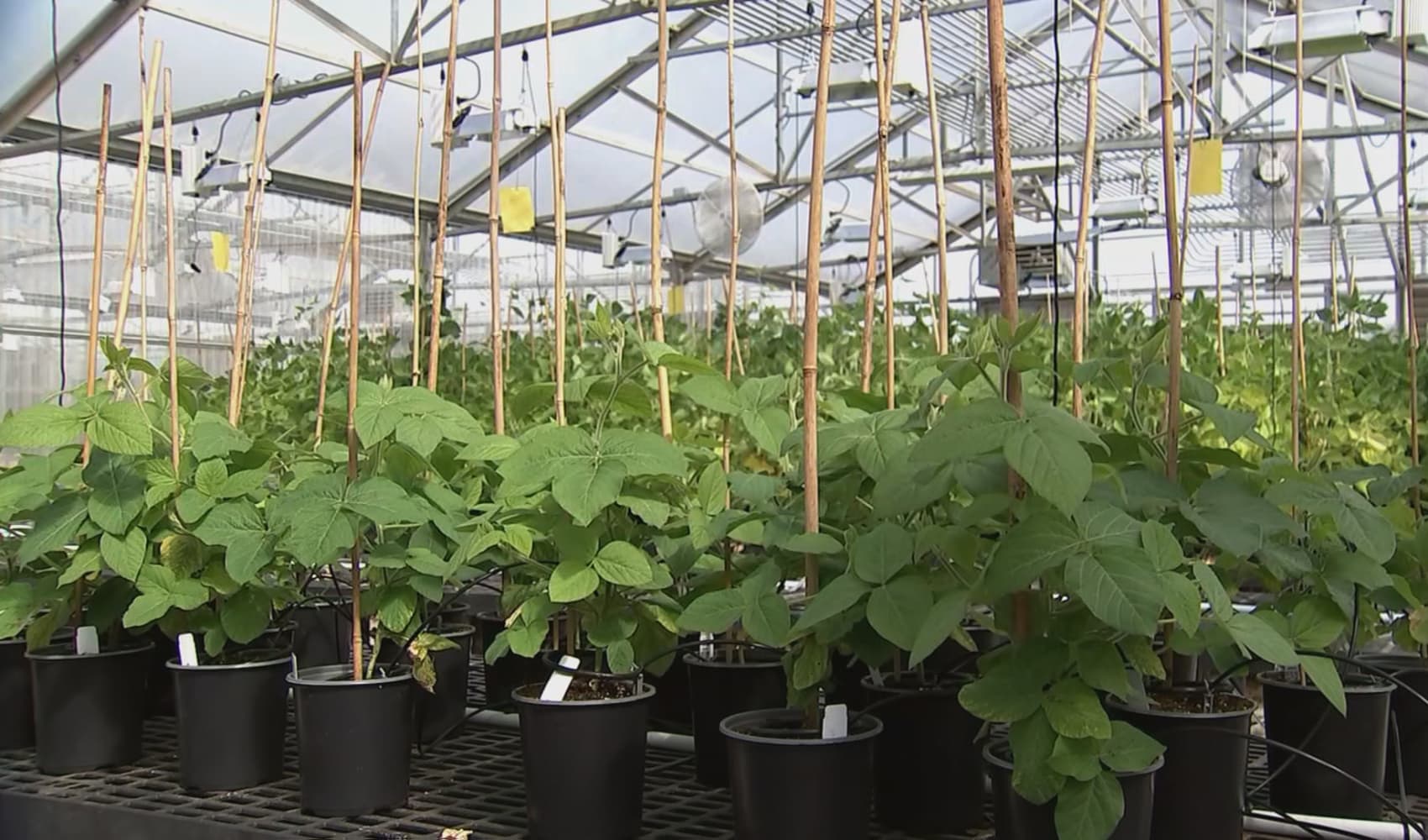
- Saudi Arabia has long labeled Iran as the biggest threat to stability in the wider Middle East, citing its nuclear program and support for militant proxy groups from Lebanon and Iraq to Yemen.
- A few rounds of direct talks between Saudi and Iranian diplomats have taken place in Baghdad over the last year.
- Earlier this year, Iranian President Ebrahim Raisi said that his country was ready for more talks with Saudi Arabia.
Saudi Arabia is seeing some progress on dialogue with its longtime adversary Iran, but not enough, the kingdom's Foreign Minister Prince Faisal bin Farhan al-Saud told CNBC on Tuesday. In the meantime, the minister says it is eager to improve the two countries' relationship.
"In Saudi Arabia, and I think it's the same in the other GCC states, we are very much focused — you know, Vision 2030 and other elements — on delivering a vision of the future that is built on hope, that is built on prosperity, that is built on development, that is built on cooperation," Prince Faisal told CNBC's Hadley Gamble during a panel at the World Economic Forum in Davos.
Get Tri-state area news and weather forecasts to your inbox. Sign up for NBC New York newsletters.
"And this is a message that, as I say, we in Saudi Arabia but also the other GCC states who all have their individual visions for the future which are all very much in that same vein, are trying to send to our region, including to our neighbors in Iran."
"Our hands are stretched out. We are trying to send the message that going into a new era of cooperation in the region can deliver benefits for all of us."
Saudi Arabia has long named Iran as the biggest threat to stability in the wider Middle East, citing its nuclear program and support for militant proxy groups from Lebanon and Iraq to Yemen, and the two countries severed diplomatic ties in 2016. Tehran insists that its nuclear program is solely for peaceful purposes.
Money Report
'Vey important sea-change'
That more peaceful future "does need a decision," Prince Faisal said. "It needs a decision in Iran to sign onto that vision of a much more prosperous, cooperative future."
The minister said that in terms of dialogue with Iran, GCC states "have made some progress, but not enough."
"We continue to encourage our neighbors in Iran to lean into what can be a very, very important sea-change in our region."

Saudi Arabia, along with its close ally the United Arab Emirates, have expressed criticism and skepticism over the Joe Biden administration's pursuit of the revival of the Iran nuclear deal, formally known as the Joint Comprehensive Plan of Action.
If a deal is reached, which previously lifted economic sanctions on Iran in exchange for curbs to its nuclear program, many regional analysts believe Saudi Arabia and its allies will have little option but to accept Iran's reentry into the international community.
"Now of course the JCPOA, if it, happens will be potentially a good thing if its a good deal," Prince Faisal added. "But for us, it is most important that we address the holistic issues — the nuclear nonproliferation, regional activity — and that can be done, but it needs a sincere desire to look to the future rather than the past."
Earlier this year, Iranian President Ebrahim Raisi said that his country was ready for more talks with Saudi Arabia. "Iran is ready to continue these negotiations until reaching an outcome, provided that the Saudis are willing to continue the negotiations in an atmosphere of mutual understanding and respect," semi-official Iranian news agency Fars quoted Raisi as saying in a call with Iraq's prime minister in February.
Leaders of Iraq, a country where the Saudi-Iran rivalry often violently plays out, have hosted several rounds of direct talks between Saudi and Iranian diplomats over the last year. Both countries have expressed cautious optimism about the discussions.

Gulf states are also increasingly skeptical of the U.S.'s security commitment to the region, and could view reconciliation with Iran as a way to hedge against future threats from the country. In recent years Saudi Arabia and the UAE have been the targets of numerous drone and missile strikes from Yemen, which U.S. officials say were in many cases either aided or directed by Iran. Tehran denies the accusations.
Iran and the kingdom are on opposing sides of the war in Yemen, which became one of the world's worst man-made humanitarian disasters after Saudi Arabia launched a bombing offensive against Yemen's Houthi rebels in 2015.
Follow CNBC International on Twitter and Facebook.






